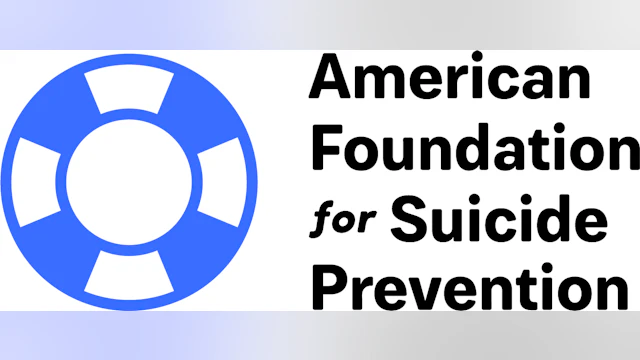HARRISBURG, PA (April 11, 2018) – Suicide is the tenth leading cause of death in the United States, and it is the eleventh leading cause of death in Pennsylvania. On Tuesday, April 17, statewide advocates from the American Foundation for Suicide Prevention (AFSP), the largest suicide prevention organization in the United States, will arrive at the state capitol to meet with lawmakers to encourage their support for Early Intervention Depression Screening [HB 2095] and Suicide Prevention in Higher Education [HB1822/SB330].
“When our suicide prevention advocates meet with our elected senators and representatives annually in Harrisburg, the conversation is as much about raising awareness of the prevalence of suicide as it is about the personal impact those losses have on families, communities, schools, and workplaces in Pennsylvania,” said Patrick Kimmel, Advocacy Co-Chair of the AFSP Western Pennsylvania Chapter. “Our advocacy goals are to educate lawmakers about the work of the American Foundation for Suicide Prevention and to encourage the passing of legislation that can help save lives in Pennsylvania.”
Half of all lifetime cases of mental illness begin by age 14. In Pennsylvania, 66.4% of youth with major depression do not receive any mental health treatment; unaddressed depression in young people is a risk factor for suicide. HB 2095 aims to encourage earlier identification and treatment of youth at risk for developing depression by requiring each child of school age to receive a depression screening prior to entrance into sixth grade. The bill does not require that school districts perform the screening nor that they receive the results. Rather, districts must receive written confirmation that the screening has occurred for inclusion in the child’s comprehensive health record. The ultimate decision of what to do with the screening results rests with the student’s parent or guardian; the bill does require that parents be given information on depression and other mental illnesses along with notification of the screening requirement. The intent behind the bill is to increase opportunities for successful mental health intervention, well before a student is in a mental health or suicidal crisis.
Assessment and treatment services for mental health conditions can save lives, but only if at-risk individuals are aware of the resources available to them. Passage of HB 1822/SB 330 would require that institutions of higher education develop and implement a plan to advise students and staff on mental health and suicide prevention programs available on and off campus. Colleges and universities would also be required to have this information accessible publicly on their websites. Lifesaving information, such as how to access crisis intervention hotlines, mental health programs, and suicide prevention resources should be accessible by all students, faculty, and staff. Transparency and easily-accessible information can reduce the stigma surrounding mental illness and reinforce the notion that it is a sign of strength to seek help.
Suicide in Pennsylvania
On average, one person dies by suicide every four hours in Pennsylvania and residents are three times more likely to die by suicide than by homicide. Among residents ages 15-34, suicide ranks as the second leading cause of death and ranks third amongst those age 10-14.
The American Foundation for Suicide Prevention is dedicated to saving lives and bringing hope to those affected by suicide. AFSP creates a culture that’s smart about mental health through education and community programs, develops suicide prevention through research and advocacy, and provides support for those affected by suicide. Led by CEO Robert Gebbia and headquartered in New York, and with a public policy office in Washington, D.C., AFSP has local chapters in all 50 states with programs and events nationwide. Learn more about AFSP in its latest Annual Report, and join the conversation on suicide prevention by following AFSP on Facebook, Twitter, Instagram, and YouTube.
Contact: Jennifer Sikora, [email protected] (412) 260-0789
# # #
